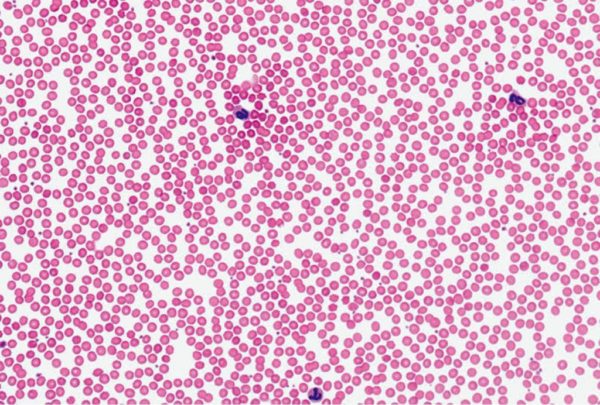
Editor’s Note: Healthy Paws is a column sponsored and written by the owners of Clarendon Animal Care, a full-service, general practice veterinary clinic and winner of a 2017 Arlington Chamber of Commerce Best Business Award. The clinic is located 3000 10th Street N., Suite B. and can be reached at 703-997-9776.
Many pets have had bloodwork run at some point in their life — perhaps prior to routine surgery such as neutering, or possibly because they were sick.
So, just what information does blood work give your pet’s doctor that isn’t otherwise apparent?
In this three-part series we’ll look first at the complete blood cell count, or CBC, and then at the blood chemistry profile and finally some of the other myriad of tests that can be run from a simple blood sample.
The complete blood cell count is one of the most basic, but also most important, tests that can be run on a patient’s blood. As the name implies, it is assessing various cell counts within the blood.
In addition to being an important baseline test it is also especially useful in patients with fevers, evidence of infection, inflammation, cancer, or in patients on certain types of medications (especially chemotherapy drugs which can often affect cell counts).
Here’s a brief run-down of the values that are assessed with a complete blood cell count:
- White blood cells, or WBCs — these cells are the inflammatory cells that help fight infection. The total white blood cell count may be elevated with infection or inflammation as well as some time of cancers. In some instances severe infection can actually lead to a low white blood cell count, as the white blood cells are “used up” in fighting the infection before the bone marrow can regenerate them (the bone marrow is where nearly all of the blood cells originate from).
White blood cells can be further broken down into several different types of cells, each with specific functions:
- Neutrophils — the most plentiful of the white blood cells, this cell is a very important player in controlling infection (particularly bacterial) and responding to inflammation.
- Lymphocytes — includes the very cooly named “natural killer cells,” B cells, and T cells, all of which are involved in responding to infection (especially viral infections).
- Monocytes — a large white blood cell often associated with chronic inflammation or infection.
- Eosinophils — elevations often seen with parasitic or allergic diseases.
- Red blood cells, or RBCs — these cells have the very important job of carrying and delivering oxygen! Anemia, or a low red blood cell count, can be seen with a number of different causes including decreased production of new red blood cells and blood loss. Hematocrit is another way to measure the red blood cell count. Hemoglobin is also measured, and refers specifically to the amount of the oxygen-carrying molecule in the red blood cells. Other parameters such as mean corpuscular volume (MCV) and, mean cell hemoglobin (MCH) can help to further characterize the anemia, and changes in the red blood cell shape can give indicators about various disease states as well. Reticulocytes are immature red blood cells, released from the bone marrow prior to full maturation. Their presence usually indicates that the body is trying to make new red blood cells.
- Platelets — these important little cells are responsible for aiding in blood clot formation. When low, there is an increased risk of spontaneous bleeding.

The majority of cells in this image are red blood cells. The larger cells with the purplish center are neutrophils, and the small purple dots are platelets.
Next week we’ll discuss a basic blood chemistry, looking at values related to specific organ change or disease.
Join us Saturday March 24, for our 3rd annual open house from 1-3 p.m. We’ll have the clinic open to clients and general public to see the behind the scenes action. We’ll have games, cool learning stations and tons of fun with our staff!
Would you like to learn more about a specific topic? Email us and let us know: [email protected].

